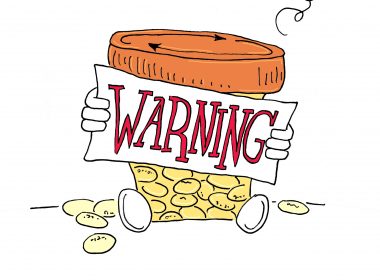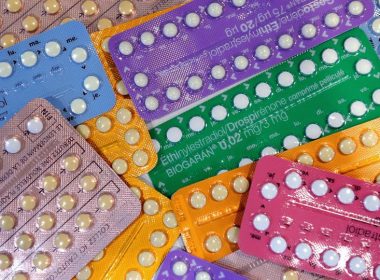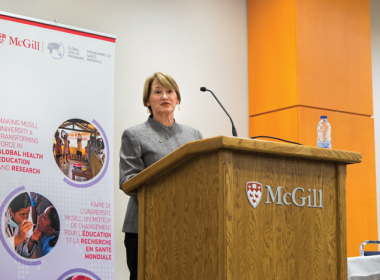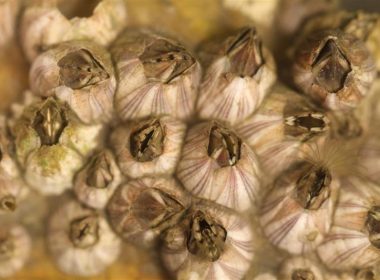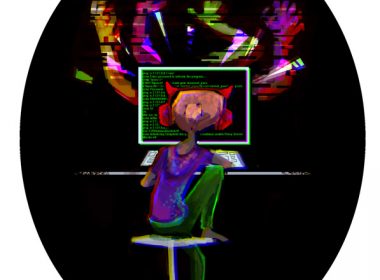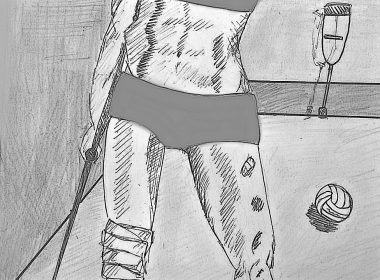Thanks to a study published in the October issue of Nature Communications, ecosystems are now known to be capable of surviving in the ancient rocks of the Earth’s crust. Two members of McGill’s Department of Earth and Planetary Sciences—Boswell Wing and Thi Hao Bui—assisted colleagues from the University of Alberta[Read More…]
Science & Technology
The latest in science and technology.
Seasonal Affective Disorder: How light therapy can help fight the winter blues
Seasonal Affective Disorder (SAD) is a mood disorder provoked by reduced daylight hours during autumn and winter. SAD is considered a seasonal type of depression characterized by irritability, oversleeping, increased tiredness, changes in appetite, and reduced motivation to participate in social activities. Countries closest to the equator report almost no[Read More…]
Joint McGill-Concordia team design net-zero energy dwelling at 2017 Solar Decathlon China
Students and faculty from McGill and Concordia have teamed up to construct a sustainable dwelling to enter the 2017 Solar Decathlon China. This year the competition will be held in Dezhou, China’s ‘Solar Valley’–so named because of the region’s focus on solar power generation. The design theme of this year’s[Read More…]
Fact or Fiction: What is the placebo effect?
When you hear the word “placebo,” what comes to mind? A flashback to the 100 flashcards of Psych 100? Medical studies and controls? People tend to think of this phenomenon detached from their own lives. But, in reality, the placebo effect can have concrete physiological consequences and is frequently used[Read More…]
How far away is the male contraceptive?
A recent clinical trial published in the Journal of Endocrinology and Metabolism produced promising results for a male contraceptive injection, but was halted early due to reports of side effects. The study, which followed 320 men and their partners, found that administering testosterone and progestogen hormones effectively prevented pregnancy in 96[Read More…]
Global Health Night showcases the growing presence of the field at McGill
“Global health at McGill is on a growth spurt,” Suzanne Fortier, McGill’s principal and vice-chancellor, said in her opening remarks at Tuesday’s Global Health Night. The annual event honours McGill’s involvement in global health arenas by celebrating students and faculty members who have made award-worthy contributions to the field in[Read More…]
Invasive species found moving into Canadian ports
Species in one continent can move to and thrive in another in a matter of days. In McGill’s backyard, mussels that have never been seen in Canada were discovered at the Old Port. With humans as their vessels, invasive species are continent-hopping at an alarming rate according to Associate Professor[Read More…]
DDoS cyberattack brings down popular sites like Netflix and Spotify
On the morning of Oct. 21, many of the world’s most trafficked websites—including Twitter, Netflix, Reddit, Paypal, and Spotify—were unreachable for users on the East Coast of the U.S. due to a Distributed Denial of Service (DDoS) cyberattack on the domain name system (DNS) provider Dyn DNS. DDoS attacks are[Read More…]
The ACL tear: An athlete’s worst nightmare
When former McGill Martlet Volleyball player Charlotte Clarke went up for a hit during a match, she wasn’t too worried about how she was going to land. But when she came down on one leg, her teammates heard a crack. “It was excruciating,” Clarke, U3 Arts, said. “The pain [made[Read More…]
McGill researcher finds lying becomes more complex with age
Department of Educational and Counselling Psychology Professor Dr. Victoria Talwar remembers that when she was a child, her mother mistakenly replaced salt with sugar in a blueberry pie. Her friend, who had stayed for dinner, was the first to eat the pie. She ate the entire slice, bite by bite,[Read More…]



